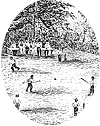In Upton in 1820: Difference between revisions
m (Bot moved page Round Ball in Upton in 1820 to In Upton in 1820undefined without leaving a redirect: Match Predecessor_Game name) |
Bsallardice (talk | contribs) No edit summary |
||
| Line 3: | Line 3: | ||
|Coordinates=42.1744878, -71.6022583 | |Coordinates=42.1744878, -71.6022583 | ||
|Entry Origin=Sabrpedia | |Entry Origin=Sabrpedia | ||
|Type of Date=Year | |Type of Date=Year | ||
|Date=1820/01/01 | |Date=1820/01/01 | ||
|Country=United States | |Country=United States | ||
|State=MA | |State=MA | ||
|City=Upton | |City=Upton | ||
|Game=Round Ball | |Game=Round Ball | ||
|Description=<p>Henderson, p. 137, attributes this to Holliman, but has no ref to Holliman or to George Stoddard, who reported the game to the Mills Commission. Also quoted at Henderson, p. 150.</p> | |Description=<p>Henderson, p. 137, attributes this to Holliman, but has no ref to Holliman or to George Stoddard, who reported the game to the Mills Commission. Also quoted at Henderson, p. 150.</p> | ||
|Sources=See also Chronologies 1829.2 | |Sources=See also Chronologies 1829.2 | ||
|Has Source On Hand=No | |Has Source On Hand=No | ||
|Comment= | |Comment=<p>From a letter to the Mills Commission: "Mr. Lawrence considers Round Ball and Four Old Cat one and the same game; the Old Cat game merely being the they could do when there were not more than a dozen players, all told. . . . Mr. Lawrence says, as a boy, he played Round Ball in 1829. So far as Mr. Lawrence's argument goes for Round Ball being the father of Base Ball it is all well enough, but there are two things that cannot be accounted for; the conception of the foul ball, and the abolishment of the rules that a player could be put out by being hit by a thrown ball. No one remembers the case of a player being injured by being hit by a thrown ball, so that cannot be the reason for that change. The foul rule made the greatest skill of the Massachusetts game count for nothing – the batting skill – the back handed and slide batting. Mr. Stoddard told me that there were 9 of the 14 Upton batters who never batted ahead."</p> | ||
<p>Henry Sargent Letter to the Mills Commission, June 25, 1905.</p> | |||
|Reviewed=Yes | |Reviewed=Yes | ||
|class=championship= | |class=championship= | ||
}} | }} | ||
Revision as of 17:10, 15 July 2023
| Date of Game | 1820 |
|---|---|
| Game | Round Ball |
| Location | Upton, MA, United States |
| Modern Address | |
| Field | Add Field Page |
| Home Team | Add Club Page |
| Away Team | Add Club Page |
| Score | |
| Has Source On Hand | No |
| Innings | |
| Number of Players | |
| NY Rules | |
| Tags | |
| Description | Henderson, p. 137, attributes this to Holliman, but has no ref to Holliman or to George Stoddard, who reported the game to the Mills Commission. Also quoted at Henderson, p. 150. |
| Sources | See also Chronologies 1829.2 |
| Source Image | [[Image:|left|thumb]] |
| Has Source On Hand | No |
| Comment | From a letter to the Mills Commission: "Mr. Lawrence considers Round Ball and Four Old Cat one and the same game; the Old Cat game merely being the they could do when there were not more than a dozen players, all told. . . . Mr. Lawrence says, as a boy, he played Round Ball in 1829. So far as Mr. Lawrence's argument goes for Round Ball being the father of Base Ball it is all well enough, but there are two things that cannot be accounted for; the conception of the foul ball, and the abolishment of the rules that a player could be put out by being hit by a thrown ball. No one remembers the case of a player being injured by being hit by a thrown ball, so that cannot be the reason for that change. The foul rule made the greatest skill of the Massachusetts game count for nothing – the batting skill – the back handed and slide batting. Mr. Stoddard told me that there were 9 of the 14 Upton batters who never batted ahead." Henry Sargent Letter to the Mills Commission, June 25, 1905. Edit with form to add a comment |
| Query | Edit with form to add a query |
| Submitted by | |
| Submission Note | |
| First in Location | |
| Players Locality | |
| Entry Origin | Sabrpedia |
| Entry Origin Url |
Comments
<comments voting="Plus" />
